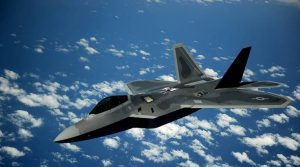The United States has stepped up air strikes against ISIL in Libya in recent months, concerned that the terrorist organisation is regrouping there after punishing defeats in Syria and Iraq, like reported by thenational.ae.
From bases deep in the desert, ISIL continues to launch attacks, on Friday killing three members of the Libyan National Army at a checkpoint near the eastern town of Ajbabiya.
The threat from the insurgents has not gone unnoticed in Washington, where the head of the Pentagon’s Africa Command, revealed earlier this week that there have been eight strikes against ISIL targets in central Libya since September, the first during President Donald Trump’s administration.
“As terrorists flee from the Middle East because of our successful military efforts there, I’m concerned about other terrorist threats trying to establish operatives in Africa,” Marine General Thomas Waldhauser told the House Armed Services Committee in the US capital.
The number of air strikes in Libya is four more than had previously been acknowledged by the US, with the most recent reportedly taking place in January.
The Trump administration has a split policy on Libya, resisting political engagement even as it continues to battle ISIL. President Trump declared last April that the north African country is not a priority: “I do not see a role in Libya, I think the United States has, right now, enough roles, we’re in a role everywhere.”
But in the same speech he said ISIL was a separate matter.
“We are effectively ridding the world of ISIL,” he said. “I see that as a primary role, and that’s what we’re going to do whether it’s in Iraq or in Libya or anywhere else.”
In addition to the air strikes, primarily from armed drones based in Sicily, Waldhauser said the US has a small number of troops on the ground in Libya.
The battle against ISIL has been fought since 2016, during president Barack Obama’s administration, when the US launched more than 500 air strikes by drones and carrier aircraft in support of local forces who vanquished ISIL from its Libya headquarters in the coastal city of Sirte.
Since then, ISIL has regrouped, taking advantage of vast tracts of empty desert to set up camps.
Another US general this week branded ISIL in Libya as a “formidable regional terrorist threat”.
The group established a reputation for brutality with the execution of 21 Christians, 20 of them Egyptian, at Sirte in 2015.
The problem, according to the US military, is that air strikes are not a game changer, with generals conceding that only a political solution will end Libya’s chaos since the fall of longtime dictator Muammer Qaddafi.
The tumult of his overthrow in a 2011 revolution spilled into civil war in the summer of 2014. Political power is divided between the UN-backed Government of National Accord (GNA) in Tripoli and an eastern government in the city of Al Bayda. Between these two poles, dozens of factions fight for influence.
The Pentagon’s concern is that extremist groups based in Libya will infiltrate neighbouring countries. Units move to and from Niger, where four US servicemen were killed in a terrorist ambush in October. Five years ago this month 40 oil workers were killed by militants who attacked Algeria’s In Amenas gas plant from a base in Libya.
“We make tactical gains in Libya, and even in Somalia, but often times we see these hard-earned gains rolled back because we lack a larger strategy and diplomatic approach to realise those tactical gains,” said the Armed Services Committee member Elise Stefanik, a Republican congresswoman, during last week’s congressional hearings.
The United Nations has brokered peace talks since the civil war began, setting up the GNA in 2016, but the bloc has struggled to find support, and is rejected by the eastern government.
A parallel diplomatic initiative was launched last year by Egypt and the United Arab Emirates, which culminated in Paris discussions brokered by French President Emmanuel Macron between GNA prime minister Fayez Al Serraj and LNA commander Field Marshall Khalifa Haftar. Neither man signed a proposed agreement calling for a ceasefire, united government and disbandment of militias. While the LNA has established control across most of eastern Libya, the GNA has failed to rid Tripoli of its all-powerful militias who fight periodic battles with each other. Security is so bad in the Libyan capital that the UN and US operate embassies from neighbouring Tunisia for security reasons.



